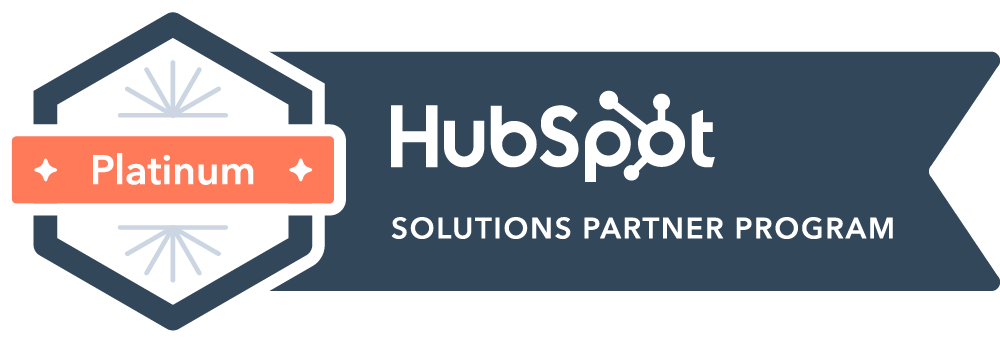

Founder and CEO of Whistle, with over 10 years of selling technology to hundreds of SMB and Enterprize companies across multiple sectors.
When it comes to starting the enterprise sales process, there are a few key steps and strategies to keep in mind. From identifying potential customers to understanding the sales cycle, building relationships with decision-makers, and demonstrating the value of your enterprise solution, this guide will provide you with valuable insights for successfully navigating the world of enterprise sales.
Building strong relationships with potential enterprise clients is essential in enterprise sales. Here are some effective strategies to build rapport and establish credibility:
Choosing the right sales strategy is crucial as it should align with the company’s niche, target market, and the strengths of the sales team. By selecting an appropriate strategy, enterprises can optimize their sales efforts and increase their chances of closing deals and achieving long-term success in the enterprise market. There are several methodologies that can be employed, each with its own strengths and advantages.
One popular methodology is SPIN selling, which focuses on asking the right questions to uncover a prospect’s pain points and needs. This approach emphasizes the importance of understanding the prospect’s situation, problem, implication, and need-payoff. The SPIN Selling methodology is similar to Solution Selling in that it relies on great sales discovery and question asking to help customers understand their problems, how impactful they are, and what the best solution might look like. The concept was introduced by Neil Rackham in 1988, and based on 12 years of research and over 35,000 sales calls. SPIN Selling is designed to help sales reps close difficult, complicated deals via relationship-building.
Another effective strategy is Challenger selling, which involves challenging the prospect’s way of thinking and offering unique insights to differentiate from competitors. This methodology requires sales reps to be assertive, teach the prospect something new, and take control of the conversation. The Challenger Sales Model is based on one of the largest sales studies ever conducted. The Challenger sales rep has a unique view of the world. They crave a good debate and work hard to gain a strong understanding of the customer’s business and needs. More than 40% of high sales performers use a Challenger style, but the other four sales personalities (the Hard Worker, the Lone Wolf, the Problem Solver, and the Relationship Builder) can also successfully learn the Challenger method.
Solution selling, on the other hand, focuses on presenting a tailored solution to a prospect’s specific needs. This approach requires a deep understanding of the prospect’s challenges and the ability to articulate how the company’s solution can address those challenges effectively. Similar to SPIN, Solution Selling helps reps uncover the challenges or problems the prospect faces, and suggest areas of their product that will solve them. Solution Selling is a poor fit for transactional sales environments with a standardized, simple solution.
Value selling emphasizes the value proposition and return on investment that the prospect can expect from the product or service being offered. It involves demonstrating how the solution can deliver significant benefits in terms of cost savings, increased efficiency, or revenue growth. The goal of value selling is to help prospects understand the potential value of a product or service, and how it can help them achieve their business goals.
Lastly, Target account selling is a strategy that aims to focus sales efforts on a select few high-value accounts. This approach involves conducting thorough research and personalizing sales efforts to resonate with key decision-makers within those accounts. Target Account Selling is a methodology that focuses on the quality of the accounts you’re targeting, rather than the quantity. It’s about identifying the accounts that are most likely to buy from you, and then focusing your sales efforts on those accounts.
Building an effective enterprise sales strategy requires a strategic approach that goes beyond traditional sales tactics. A well-developed strategy encompasses various elements, such as identifying target accounts, understanding the buyer’s journey, implementing the right sales methodologies, and leveraging tools and technology to streamline the sales process.
This comprehensive approach allows sales teams to navigate complex sales cycles, engage with enterprise clients, and close high-value deals. By aligning the sales strategy with the goals and values of the enterprise, businesses can effectively position themselves as trusted partners, create a shorter sales cycle and drive long-term business growth.
Getting this step right is pretty much non-negotiable. This involves identifying potential enterprise customers who are most likely to benefit from your product or service, and who have the resources and authority to make purchasing decisions.
One effective strategy for identifying the right prospects is to create an ideal customer profile (ICP). An ICP is a detailed description of the characteristics that define your ideal customer. This includes factors such as location, revenue, industry, and business model. By creating an ICP, you can prioritize your sales efforts and focus on prospects that align with your target market.
Location is an important factor to consider when creating an ICP, as it can determine the feasibility of reaching certain prospects. Revenue is also crucial, as it indicates the financial capacity of a prospect to make a significant purchase.
Once you have established your ICP, you can leverage various sales methodologies to target prospects effectively. Examples include SPIN selling, which focuses on uncovering a prospect’s Situation, Problem, Implication, and Need-payoff; Challenger selling, which challenges a prospect’s assumptions and offers new insights; Solution selling, which emphasizes the unique solution your product or service provides; Value selling, which focuses on the value and return on investment for the prospect; and Target account selling, which customizes the sales approach for specific high-value accounts.
In the enterprise sales process, it is crucial to define the needs, budget, timeline, and authority of potential clients. This information is essential for understanding the client’s requirements and aligning them with your product or service offerings.
This involves understanding their pain points, challenges, and objectives. By identifying their specific needs, you can tailor your sales approach to highlight the solutions your product or service can provide.
Understanding the financial resources that the client is willing to allocate to address their needs helps in determining the feasibility and scope of the proposed solution. This information also allows you to position your offering effectively in terms of pricing and ROI.
In addition to needs and budget, the timeline is a key consideration. Knowing the client’s desired implementation timeframe, project deadlines, or milestones enables you to assess the urgency and prioritize your sales efforts accordingly.
This refers to the decision-making power and influence of the stakeholders involved in the purchasing process. Identifying the decision-makers and understanding their roles and responsibilities ensures that you engage with the right individuals and build relationships with them.
Involving relevant stakeholders early on is crucial for building a successful sales process. It helps in gaining valuable insights, addressing concerns, and tailoring the sales approach to meet the specific needs of each stakeholder. This involvement also ensures that all stakeholders have a sense of ownership and engagement, which can accelerate the decision-making process.
Crafting solutions that specifically address enterprise challenges is essential in the sales process. Enterprises often have complex needs and unique pain points that require tailored solutions to effectively address and overcome them. By understanding and addressing these challenges, sales teams can position their products or services as valuable assets that can streamline operations, improve efficiency, and drive growth for enterprise clients.
Enterprises often operate on a larger scale, requiring solutions that can handle high volumes of data, users, or transactions without sacrificing performance. Additionally, flexibility is crucial as enterprises may have specific requirements or workflows that need customization. Integration capabilities allow seamless integration with existing systems and workflows, minimizing disruption and maximizing productivity.
Enterprise decision-makers are typically more concerned with the bottom line and want to see how investing in a product or service will benefit their organization. Case studies and testimonials that showcase successful implementations and quantifiable results are powerful tools in demonstrating the value and ROI that enterprises can expect.
One of the key components of a successful enterprise sales process is thorough preparation for each step. This involves taking specific actions to ensure a smooth progression through the sales cycle and increase the chances of closing the deal. Here are some steps to prepare for each stage of the enterprise sales process:
Enterprise sales software, like an enterprise CRM, is a powerful tool that can significantly streamline the complex sales process and give sales teams a competitive edge. The software is specifically designed to facilitate and enhance the enterprise sales process, improving coordination and alignment among revenue teams and providing valuable insights to guide sales reps.
This software allows teams to easily collaborate, access shared resources, and track progress in real-time. By improving communication and visibility, sales teams can work more efficiently and effectively, ensuring that everyone is on the same page throughout the sales process.
With advanced analytics and machine learning capabilities, the software can analyze vast amounts of data to identify patterns and trends. This valuable information can help sales teams make data-driven decisions, such as identifying potential customers, understanding their preferences, and predicting sales outcomes.
By tracking and analyzing the sales pipeline, the software can highlight potential bottlenecks or gaps in the sales process. These actionable insights enable sales reps to take proactive measures and optimize their strategies to maximize results. By leveraging this software, sales teams can enhance their efficiency, effectiveness, and ultimately, their success in the competitive enterprise sales landscape.
Closing enterprise sales can be a challenging task, but the potential rewards make the efforts worth it. As discussed in the previous sections, enterprise sales involve complex sales cycles, multiple decision-makers, and significant deal sizes. However, by implementing the right strategies and leveraging the power of enterprise sales software, sales teams can significantly increase their chances of success.
The tips and techniques outlined throughout this guide, such as understanding the enterprise sales cycle, building relationships with key decision-makers, and leveraging social proofs, can greatly enhance sales effectiveness. Additionally, by utilizing AI-driven insights and analytics provided by enterprise sales software, sales teams can gain valuable intelligence that can inform their decision-making and enable them to make data-driven sales efforts.
To find out more about what enterprise selling is and its benefits, please check out part 1 of this series. Or book a meeting with our sales team to see how we can help you.


© Copyright – Whistle 2023